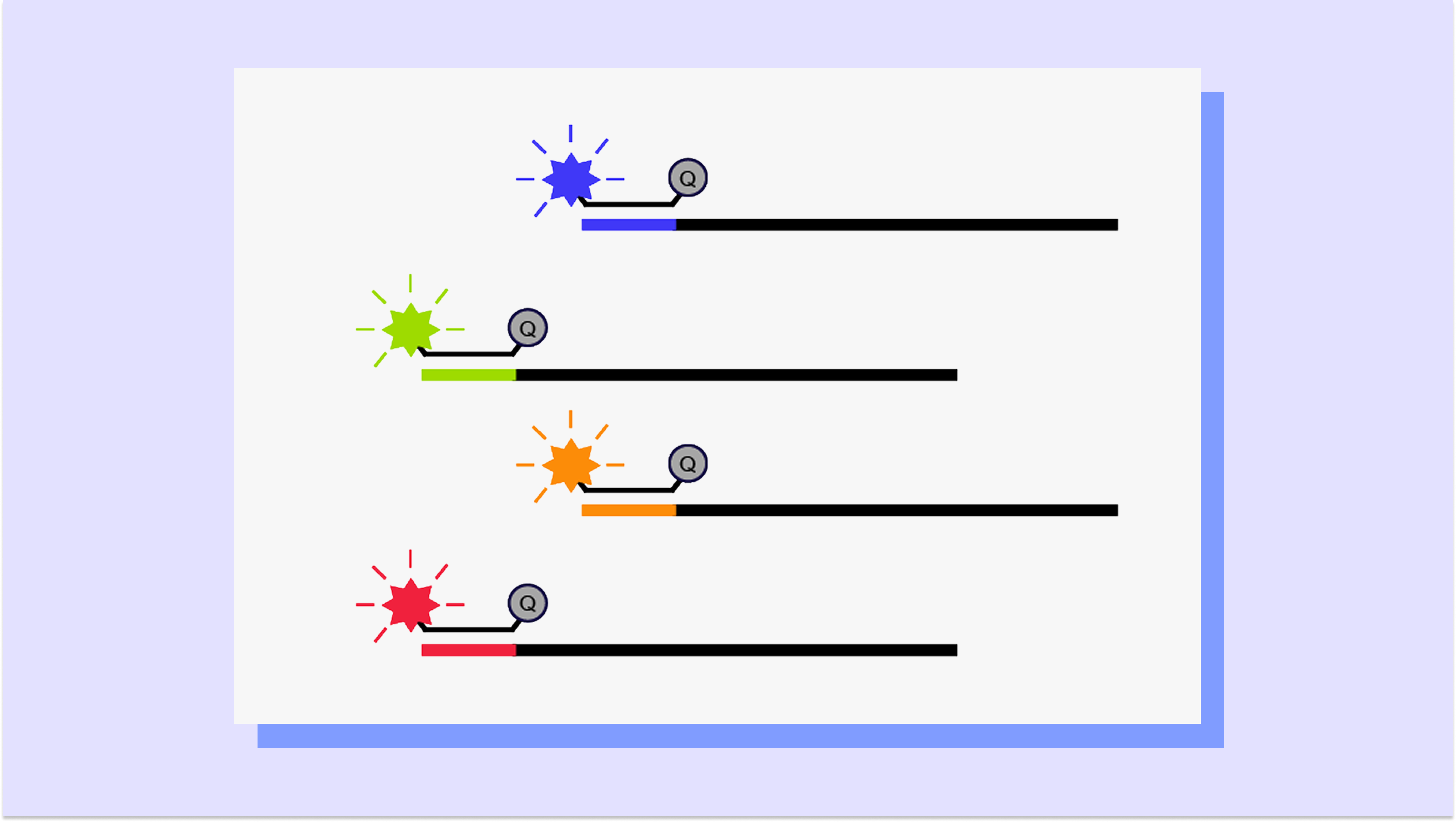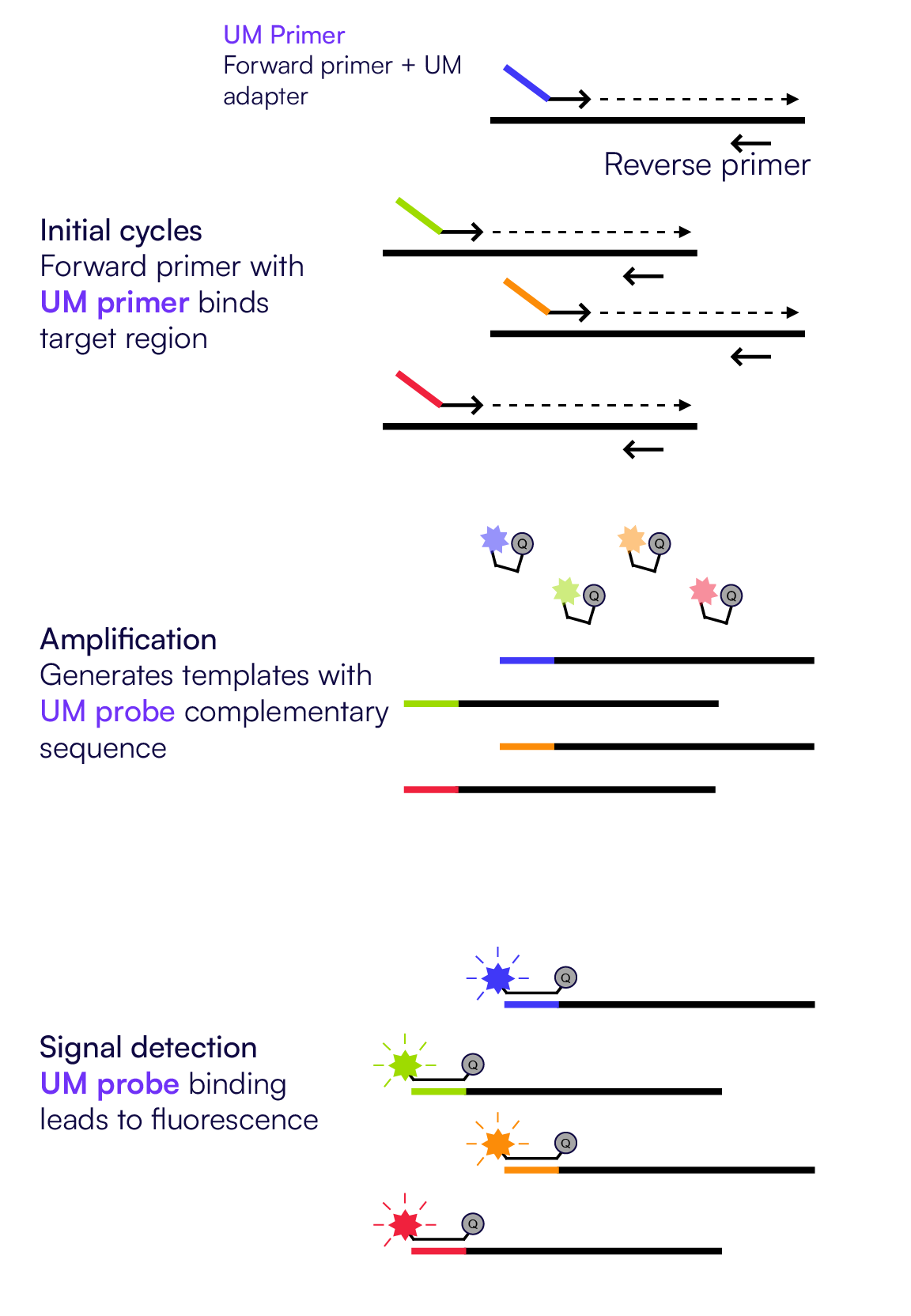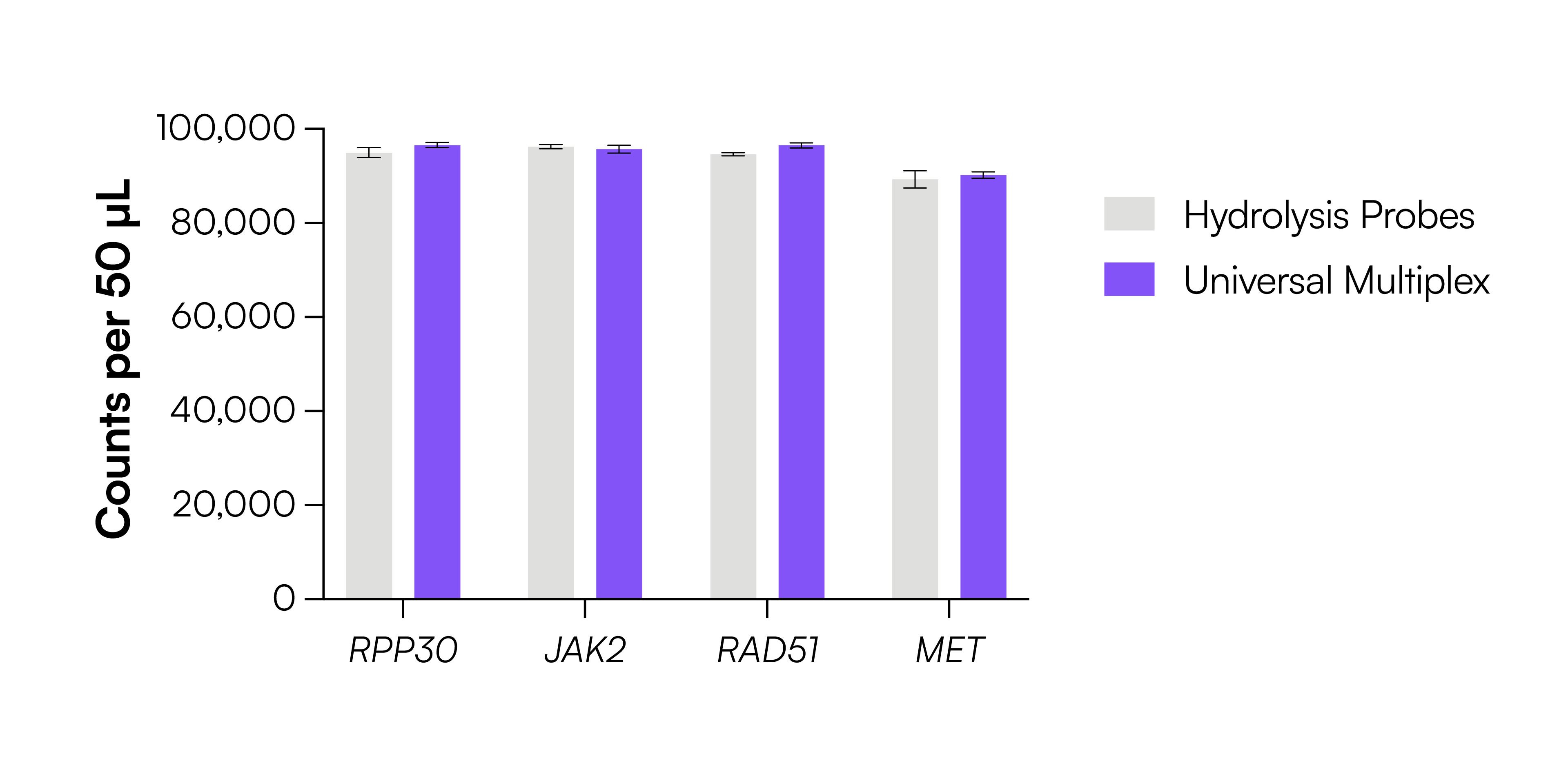

Multiplex PCR has always felt out of reach. It’s complicated. It’s expensive. It only makes sense if you’re running the same assay hundreds of times.
Multiplexing in qPCR is prohibitively difficult to optimize, especially for one-off experiments. But moving to dPCR isn’t much easier — though you do get “absolute” quantification.
What if multiplexing were as straightforward as dye-based assays — and as robust and quantifiable as dPCR experiments? And what if it didn’t break the bank and rob you of weeks of your life to do it?
Experience stress-free multiplexing with Universal Multiplexing
Universal Multiplexing (UM) lets you detect up to four targets in the same reaction — without requiring custom hydrolysis probes or spending weeks optimizing assay conditions.
Here’s how you set up a UM assay:
- Order your standard oligos. When ordering the forward primers, add the UM adapter sequence – that’s it, you’re done.
- Add your primers and UM probes to your Countable PCR mix. No special setup, no complex protocol. Countable PCR uses a standard PCR amplification protocol to get you high-sensitivity results.
- Count your targets in the Countable PCR System. Countable Control software automatically tells you how many counts there are per target by channel — with no bleed-through or amplification bias.

Same counts, same accuracy with Universal Multiplexing
In a direct comparison, a 4-plex UM assay delivered the same target counts as a hydrolysis-probe assay — with no difference in accuracy.

How multiplexing transforms your genomic workflow
Multiplexing is about doing more with what you have:
- Get better data — when you compare targets side by side in the same well
- Use less sample — crucial when working with limited cells or nanograms of DNA
- Reduce the noise — from pipetting errors and cross-run variability
- Scale your experiments — without scaling your stress
Universal Multiplexing with Countable PCR makes multiplexing way more accessible than traditional dPCR or qPCR assays.
So if you’re working on gene therapy, expression analysis, or discovery screening, and still running reactions one by one, it’s time to rethink what’s possible.
Make multiplexing a routine – not a special event – with Universal Multiplexing
Universal Multiplexing brings the power of direct quantification of multiple targets with the ease of dye-based singleplex assays. Quit settling for either speed or resolution – and do it cheaper.


.jpg)


